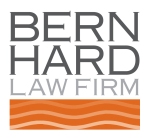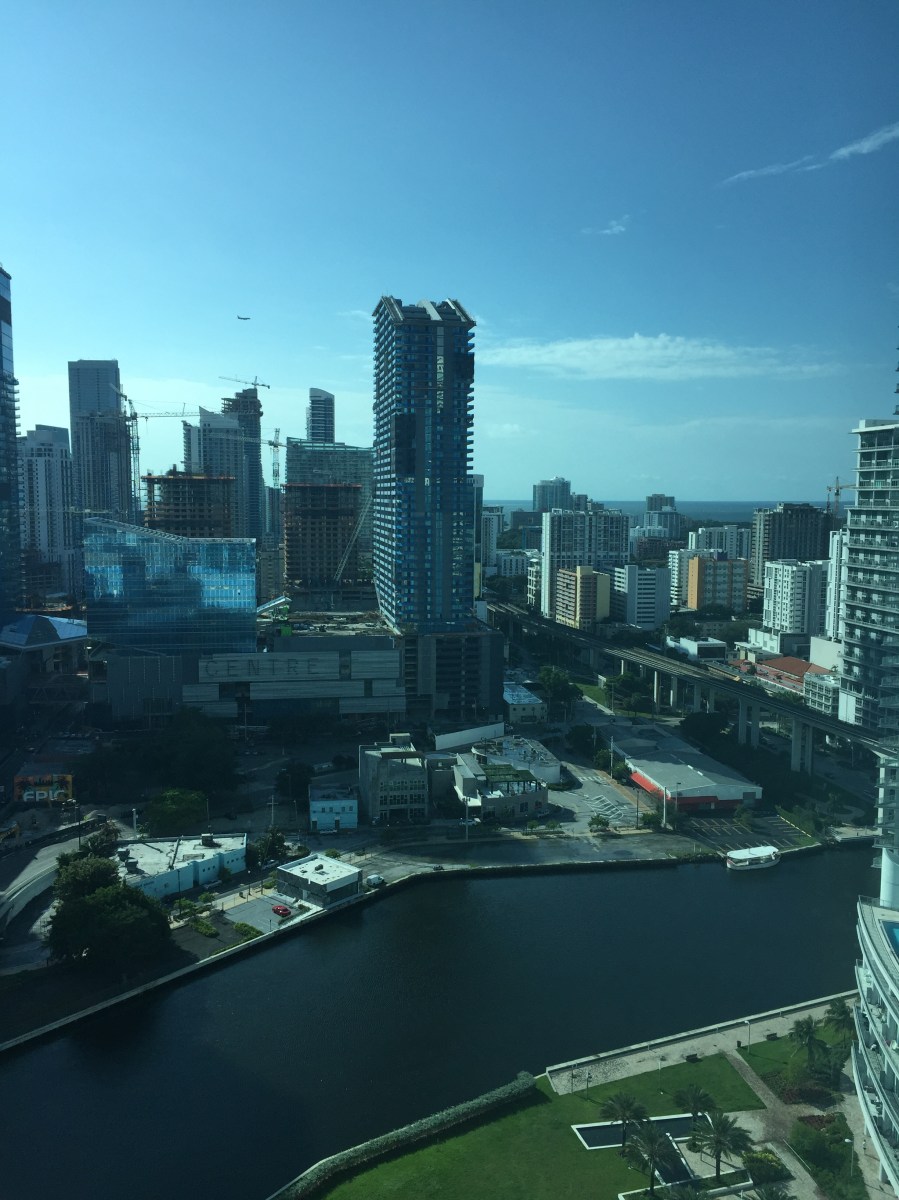THE PRELIMINARY INJUNCTION PRIMER: RESTRAINING ORDERS IN FLORIDA CIVIL DISPUTES
A preliminary injunction is a civil court order preventing another’s action or activity, sought under exigent circumstances at the beginning of a lawsuit. The terms preliminary injunction and temporary injunctions are used interchangeably, and are the civil court equivalent of a temporary restraining order (TRO) for domestic violence or stalking. However, in civil court, the person seeking a preliminary injunction must do so under Florida Rule of Civil Procedure 1.610 under a showing of clear legal right, irreparable harm, no adequate remedy at law, and no disservice to the public interest. This article aims to provide a primer to seeking preliminary injunctive relief in Florida civil courts. If you have questions about preliminary injunctions and temporary injunctions in Florida civil court, please contact Bernhard Law Firm PLLC at 786-871-3349, abernhard@bernhardlawfirm.com, www.bernhardlawfirm.com.
The Basic Legal Standard for Preliminary Injunctions
 The purpose of a preliminary injunction is to preserve the status quo until a final hearing when full relief may be granted, and thus a party is not required to prove his case in full at a preliminary injunction hearing. Grant v. Robert Half Intern., Inc., 597 So. 2d 801, 802 (Fla. 3d DCA 1992) (affirming preliminary injunction to preserve status quo until final hearing on merits). The Court may exercise broad discretion in granting injunctions and will not be overturned unless a clear abuse of discretion is demonstrated. U.S. 1 Office Corp. v. Falls Home Furnishings, Inc., 655 So. 2d 209, 210 (Fla. 3d DCA 1995) (citing Wise v. Schmidek, 649 So. 2d 336 (Fla. 3d DCA 1995)).
The purpose of a preliminary injunction is to preserve the status quo until a final hearing when full relief may be granted, and thus a party is not required to prove his case in full at a preliminary injunction hearing. Grant v. Robert Half Intern., Inc., 597 So. 2d 801, 802 (Fla. 3d DCA 1992) (affirming preliminary injunction to preserve status quo until final hearing on merits). The Court may exercise broad discretion in granting injunctions and will not be overturned unless a clear abuse of discretion is demonstrated. U.S. 1 Office Corp. v. Falls Home Furnishings, Inc., 655 So. 2d 209, 210 (Fla. 3d DCA 1995) (citing Wise v. Schmidek, 649 So. 2d 336 (Fla. 3d DCA 1995)).
Preliminary injunctive relief requires establishing: (i) the likelihood of irreparable harm and the unavailability of an adequate remedy at law, unless the action is to enforce real property covenants; (ii) substantial likelihood of success on the merits; (iii) that the threatened injury outweighs any possible harm; and (iv) that granting a preliminary injunction will not disserve the public interest. U.S. 1 Office Corp. at 210 (aff’ing lessee’s preliminary injunction from eviction where it faced business destruction without opportunity to apprise customers of new location, damages difficult to calculate without trace record at new location, and harm was ongoing).
To help illustrate Florida preliminary injunctions in familiar circumstances, this article will review a request for preliminary injunction in the context of a Florida unit owner seeking a preliminary injunction against a condominium association. It should be noted that the occupier of condominium space used for private purposes has standing to seek injunctive relief against the condominium association with respect to use of that space while waiting for full adjudication of a larger dispute. Jamlynn Invs. Corp. v. San Marco Residences of Marco Condominium Ass’n, Inc., 544 So. 2d 1080, 1082 (Fla. 2d DCA 1989).

Irreparable Harm Required for Preliminary Injunctions
Irreparable harm (i.e. inadequate remedy at law) is normally required to obtain any injunction; however, irreparable harm is not required for injunctions to enforce restrictive covenants on real property. Jack Eckerd Corp. v. 17070 Collins Ave. Shopping Ctr., Ltd., 563 So. 2d 103, 105 (Fla. 3d DCA 1990) (“Where an injunction is sought to prevent the violation of a restrictive covenant, appropriate allegations showing the violation are sufficient and it is not necessary to allege, or show, that the violation amounts to an irreparable injury.”); Planned Parenthood of Greater Orlando v. MMB Properties, 171 So. 3d 125, 131 (Fla. 5th DCA 2015) (“MMB correctly argues that when injunctions enforce restrictive covenants on real property, irreparable harm is not required.”).
Where not seeking to enforce restrictive covenants, under Florida law there is an inadequate remedy at law where the plaintiff seeks to stop a defendant from violating property rules and regulations, which money damages cannot accomplish. Keystone Creations, Inc. v. City of Delray Beach, 890 So. 2d 1119, 1125 (Fla. 4th DCA 2004) (affirming preliminary injunction on inadequate remedy where city sought to stop construction of improvements on city property as money damages could not stop violations of land use regulations); Lingelbach’s Bavarian Restaurants, Inc. v. Del Bello, 467 So. 2d 476, 479 (Fla. 2d DCA 1985) (“imminent jeopardy of being evicted from the premises manifestly warranted the trial court’s injunctive decree maintaining the status quo pending the outcome of the basic lawsuit.”).
Likewise, acts that could permanently damage a plaintiff’s real and personal property sustain a showing of irreparable harm. Hall v. City of Orlando, 555 So. 2d 963, 963 (Fla. 5th DCA 1990) (holding property owner was entitled to preliminary injunction preventing city from expanding use of drainage on his property and flooding surrounding area); S. Fla. Water Mgmt. Dist. v. City of St. Cloud, 550 So. 2d 551, 553 (Fla. 5th DCA 1989) (finding irreparable harm where continued construction would affect availability of resource outside of construction); Zuckerman v. Prof. Writers of Fla., Inc., 398 So. 2d 870, 872 (Fla. 4th DCA 1981) (affirming preliminary injunction against destruction of records).
Additionally, there is an inadequate remedy at law where there is no indication that the defendant has sufficient liquid assets to cover the value of harm caused without an injunction. Warten v. Caguas Cent. Fed. Sav. Bank of Puerto Rico, 567 So. 2d 42, 43 (Fla. 3d DCA 1990) (holding plaintiff likely to be irreparably harmed because defendant had not shown assets to fulfill judgment damages). Similarly, if the likely harm done to a condominium owner plaintiff is speculative and unascertainable, then there is an inadequate remedy at law and a preliminary injunction should be entered. See Hall at 966 (citing Zimmerman v. D.C.A. at Welleby, Inc., 505 So. 2d 1371 (Fla. 4th DCA 1987)); Lea v. Vasco Prods., 81 F.2d 1011, 1012 (5th Cir. 1936) (holding preliminary injunctions should issue to protect status quo where plaintiff alleges long-existent conditions developed through long expense of time and money over years).

Where Floridians have established inadequate legal remedy, the Court should must still address that there is a clear legal right or substantial likelihood of success on the merits; that the threatened injury outweighs any possible harm; and that granting a preliminary injunction will not disserve the public interest before issuing a preliminary injunction.
Clear Legal Right or Substantial Likelihood to Succeed Required for Preliminary Injunctions
A “clear legal right” to relief means that the plaintiffs show a substantial likelihood of success on the merits. Hall at 963 (holding property owner was entitled to preliminary injunction preventing city from expanding use of drainage on his property and flooding surrounding area). In the context of real property disputes, where a defendant’s acts appear to exceed the scope of its express rights on real property (e.g. an easement or other covenant), then the plaintiff is likely to succeed on the merits and entitled to a preliminary injunction from the defendant’s actions on the real property. Id. at 966. Similarly, where there is an apparent exemption or governing rule that suggests the plaintiff is likely to prevail on the merits, the Court should enter a preliminary injunction. See Major League Baseball v. Butterworth, 181 F. Supp. 2d 1316, 1338 (N.D. Fla. 2001) (holding MLB entitled to preliminary injunction where it was likely to prevail on merits given express baseball exemption in governing law).
Where Floridians have established clear legal right, the Court should must still address that the threatened injury outweighs any possible harm; and that granting a preliminary injunction will not disserve the public interest before issuing a preliminary injunction.
Balancing Harms and Public Interest Required for Preliminary Injunctions
Before issuing a preliminary injunction, the Court must weigh the difference in harm caused by issuing or not issuing the injunction, along with the public interests. U.S. 1 Office Corp. at 210. In weighing the possible harms of entering a preliminary injunction, the Court should keep in mind that the status quo which should be preserved is the last, actual, peacable, uncontested condition which preceded the immediate controversy. Chicago Title Ins. Agency of Lee Cnty., Inc. v. Chicago Title Ins. Co., 560 So. 2d 296, 297 (Fla. 2d DCA 1990). Further, the public has an interest in seeing that rules and regulations are complied with, and that private use of real property is not improperly and unnecessarily affected, and thus the issuance of a preliminary injunction to enforce those rules serves the public interest. Keystone Creations at 1125 (affirming preliminary injunction on public interest where city sought to stop construction of improvements on city property as money damages could not stop violations of land use regulations); Hall at 966 (holding property owner was entitled to preliminary injunction preventing city from expanding use of drainage on his property and flooding surrounding area).

In sum, preliminary injunctive relief requires establishing: (i) the likelihood of irreparable harm and the unavailability of an adequate remedy at law, unless the action is to enforce real property covenants; (ii) substantial likelihood of success on the merits; (iii) that the threatened injury outweighs any possible harm; and (iv) that granting a preliminary injunction will not disserve the public interest. Only on a sufficient showing of each element should the Court enter a preliminary injunction under Florida Rule of Civil Procedure 1.610. If you have questions about preliminary injunctions and temporary injunctions in Florida civil court, please contact Bernhard Law Firm PLLC at 786-871-3349, abernhard@bernhardlawfirm.com, www.bernhardlawfirm.com.


[…] Check it out here: https://fraudlawyersflorida.com/2015/11/22/the-preliminary-injunction-primer-restraining-orders-in-fl… […]
[…] Check it out here: https://fraudlawyersflorida.com/2015/11/22/the-preliminary-injunction-primer-restraining-orders-in-fl… […]
Getting screwed on real estate deal in the villages